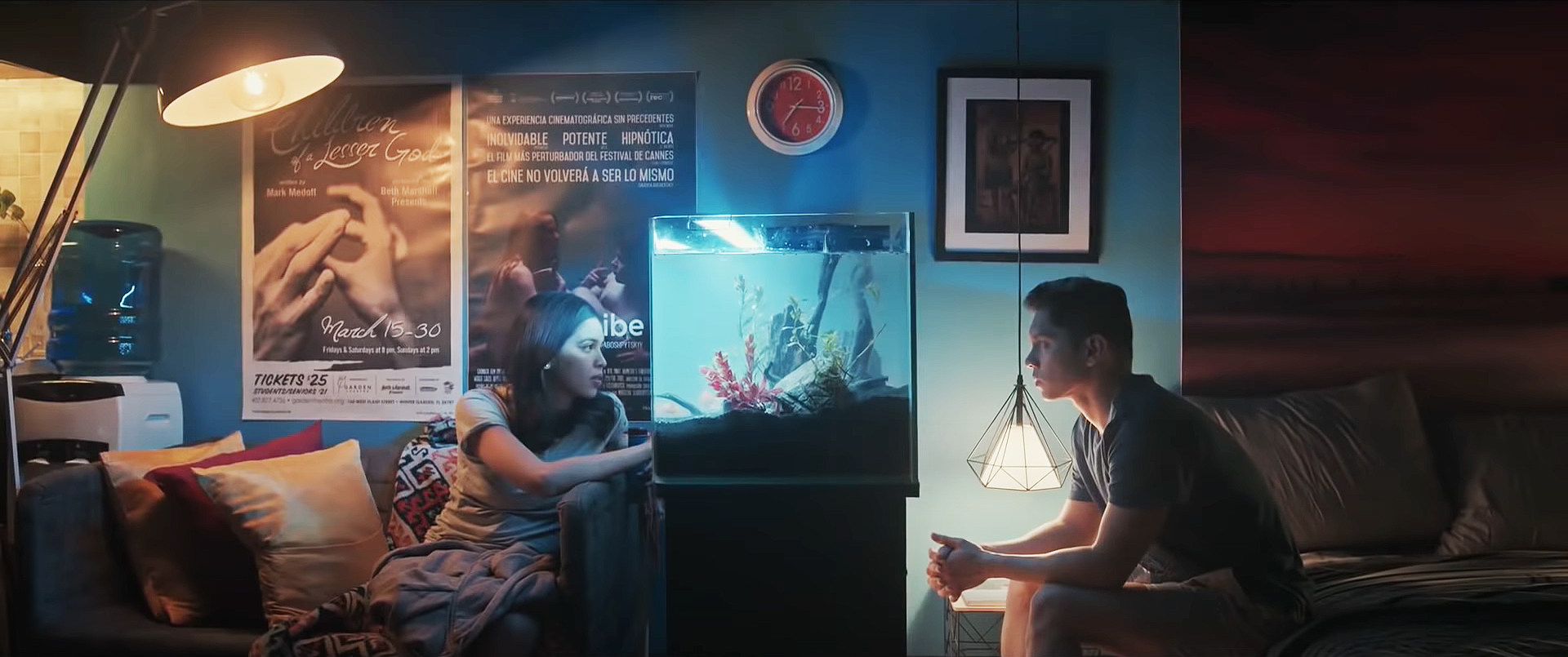'Isa Pa, With Feelings' REVIEW: The kilig and kindness we need right now
The title Isa Pa, With Feelings (once more, with feeling) is first referenced in a scene early in the movie. Sign language instructor Gali (Carlo Aquino) is teaching the hearing Mara (Maine Mendoza) how to say “sorry.” Her first attempt was lacking; apparently she needs to put more expression and feeling into it. It’s how she will be best understood in that language.
The weight and meaning we put into our words, and the extra effort given to truly communicate, is a theme that continues through the film and is its simple yet lasting message. Say it. Feel it. Mean it.
There is kilig in the real and “regular”
As a romance author/publisher and writing community mentor, I come to any Filipino romance entirely invested and often disappointed. We’ve associated so many harmful themes with romance and after decades of consuming this content, some have decided they’re forever linked.
One of these harmful themes is that romance comes with extreme suffering—take everyday Filipino suffering and crank it up. In the 90-minute running time, pack it with misfortune after misfortune. And then, if that wasn’t enough, end it with tragedy.
Some people forget that tragedy is an entirely different genre and story. Romance is how we love.
In romance fiction we see how we love, and how we find each other, in situations that seem like magic.
“But I only know love as pain, and I want my romance movie to feel real,” someone might say. Consider then the very real and regular Mara, on the verge of a breakdown after failing the architecture board exams that everyone expected she would ace. Consider the very real and regular Gali, trying to get by in a city and society that has not accommodated his needs as a Deaf person, and has a plan (a “big dream”) to start the kind of school he wants Deaf children to have access to.
Romance is how we love. In romance fiction we see how we love, and how we find each other, in situations that seem like magic. In Filipino romance fiction we see all of this and feel it through kilig—we feel this magic in our heads all the way down to our toes.
Mara lives in an apartment building and has awkward almost-introductions with her cute neighbor. She has a niece who is Deaf, and to communicate with her better Mara starts taking a sign language class. And who happens to be her teacher? Cute neighbor Gali. Like magic. Cue the kilig.

There is kilig in kindness
As their lessons progress, Mara does not only gain proficiency in a new language. Her scheduled breakdown is put on pause when she sees how helpful she can be to someone else. Gali is taking dance classes and needs a partner; she can do that. The way that our society has neglected accessibility for the disabled has made “simple” things like food delivery so difficult; she has a fix for it. Gali has missed out on “iconic” pop culture moments; she translates and reenacts.
Every moment is so steeped in sincerity and kindness—refreshing when we remember that they're choosing to do this in an unkind world. Mara and Gali's growing trust in each other is heartwarming and cute until it naturally rolls toward its bleak moment, and it isn’t any of the cliches (not the Car Crash, not the Terminal Disease Diagnosis, not the Sudden Death of a Loved One).
Instead it’s the very real fear of being left behind, again. Gali’s previous relationship was with a hearing person, who eventually left. The story respects this as a pain that cuts as deep as anything else thrown at a romance main character, and puts the responsibility of working to earn his trust on the right person, on Mara. She has to learn to say it, and feel it, and mean it.

Watch it one more time, with feelings
It is also, by the way, a great film to experience. I’ve seen it four times and have found new things to enjoy and savor.
Maine Mendoza is a delightful, bouncy presence and her sadness, when it comes, is not overdone. Carlo Aquino is excellent in a performance that required him to be both competent and vulnerable in another language.
The movie uses captions to convey communication and lack thereof. Its use of Buwan by juan karlos keeps the song in your head for a long time. Sometimes the film shifts to Gali’s perspective and it’s all vibrations and colorful light—how he sees Mara.
It isn’t all sweetness and fluff, though. A viewer may need content warnings for ableism, and that both lead actors are hearing. Rewatching has also reminded me of what it lacked, and that just means I wanted more. More about the new and better communication with the niece, more about what the future will look like for them, more resolution about Mara's mental health and her career. But the movie has sold me enough on how good they are as people that I have faith they will make good choices. (Still it would be better if we saw those good choices. I have the energy to shed happy tears).

I say this to everyone and I get the chance to say it again, with all the feelings: This is my favorite Filipino romance movie now. Send our support toward romance that shows us how people love, and make the world better for each other. This is the more difficult but rewarding story to tell right now. So if you think this matters, it’s time to say it. Feel it. Mean it.


